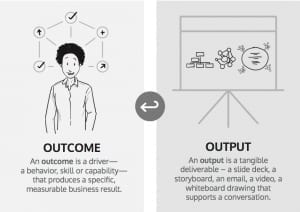6 Qualities of a Good Boss

Lack of employee satisfaction may force good workers to leave and provide a bad reputation for both your company and you, as the boss. Online forums and discussions make it extremely easy for businesses to be bad-mouthed and can damage the perception of potential new employees and customers. Therefore, it’s important to learn that whatever happens in the office doesn’t necessarily stay in the office.
A boss should boost productivity and create a work environment that encourages employees to enjoy their working life, rather than turning up as a matter of need’s must. Being a boss does not solely mean you need to focus on the work being done and produced, in fact, it is much more valuable for bosses to concentrate on their employees instead.
If you are concerned about whether your employees view you as a good boss, here are some useful qualities that you should aim to work towards.
1. Creates a positive workplace culture
Every employee within your firm is there to ensure your business is a success; therefore, potential new candidates shouldn’t be disregarded when it comes to their race or disability. Invite them to an interview and acknowledge what they can bring to the table, as well as asking if they may have any needs for a safer and more positive work environment.
An approachable boss should instill an ‘open door policy’ so that employees can ask to talk at any given moment and feel comfortable to have a discussion about any issues or concerns within the workplace. Doing so means that issues are ironed out, so positivity can be increased, meaning greater employee satisfaction.
2. Sets clear performance expectations
Reduce the level of employee stress by setting clear goals and expectations of what you would like your employees to achieve on a daily basis. When they have little understanding of what they need to do, it can often lead to decreased productivity throughout the entire office. The boss should have a one-to-one discussion each day with the employee; whether it be face-to-face or via email and set out clear guidelines of the tasks that need to be completed and how they can do so.
3. Nurtures development
Many young professionals are keen on the idea of moving forward within a company and will often only apply for a role if the job advert specifies that there is an opportunity for training and promotion in the future.
A boss who allows employees to work within other sectors or on more complex will make their employees feel far more appreciated by their leader, rather than being managed by an individual who doesn’t have their best interests at heart. There are many ways in which training can be achieved while holding down a job; whether it be practical day courses or long-term degrees which can be studied flexibly online in their own time. An engineering firm, for example, may decide to invest in their employees to enroll onto an electrical engineering online degree which teaches Bachelor’s level engineering graduates a vast amount of new skills and will enhance personal development and opportunity for career progression.
4. Praises employees
According to a study conducted in early 2017, 35% of employees in workplaces stated that one of the biggest hinderances in workplace productivity was failing to be praised for their achievements. If you don’t praise your employees enough, now would be a good time to start.
In order for your team to work well for you and reach their full potential, you need to be in keeping with each employee’s goals and achievements so that they can be rewarded for good work. Praising employees may also mean that you will retain good talent within your company rather than facing a high-turnover of staff, which can waste both time and money.
There are many ways you can praise your employees; whether it be a simple yet personal ‘thank you’ card, a financial bonus added onto their paycheck or a voucher for their favorite store.
5. Provides feedback
There are some instances when you need to be upfront about an employee’s performance, and one way of doing so constructively would be by providing feedback. Acknowledge when employees are doing a good job and where key improvements may lie.
It is often the case when employees don’t even realize they aren’t meeting the requirements unless they are discovered to have been completing work wrongly by chance. Feedback, however, can be achieved through regular coaching, in which meetings should be held on a monthly or quarterly basis for an in-depth discussion on how they can improve and what to work towards.
6. Builds up trust
There is nothing worse than a boss who doesn’t hold the trust of their employees. Therefore, you should always aim to get on their level and build a personal connection with each of them. Establishing trust ensures successful communication, greater engagement, and better job performance.
One way to build trust is to display honesty, even if there is bad news to share – no-one likes to be lied to, especially when it comes to the status of their job position or job performance.
You should treat all employees fairly and judge each individual based on their actions. Never feel threatened by those who shout louder. As the boss of the company, you should be able to stand your ground and ensure that everyone gets fair treatment.
One of key ways of building a trusting relationship is to show an understanding when it comes to difficulties in their personal life and ask if all is okay if you happen to notice that they are performing poorer than usual. Insist that you are always available to talk to and that help is at hand if needed. Expressing your own vulnerabilities not only allows you to build up a more human relationship with each of your employees but will establish yourself as a mentor that they confide in.




